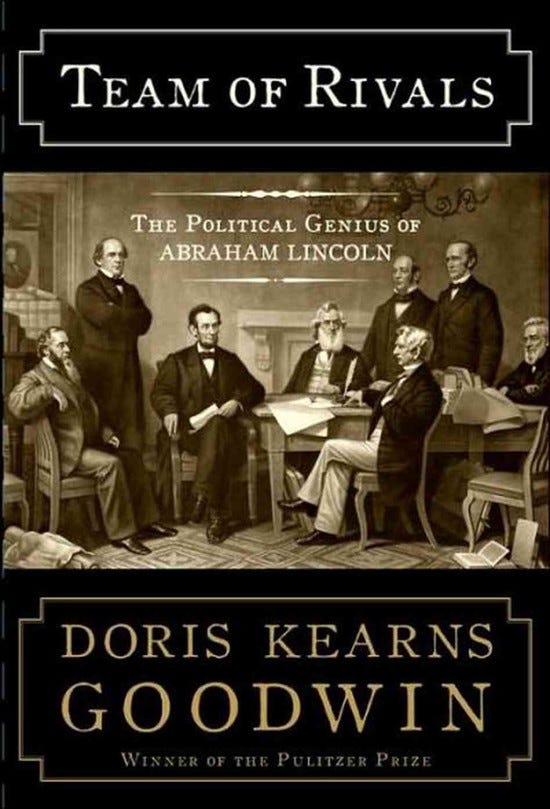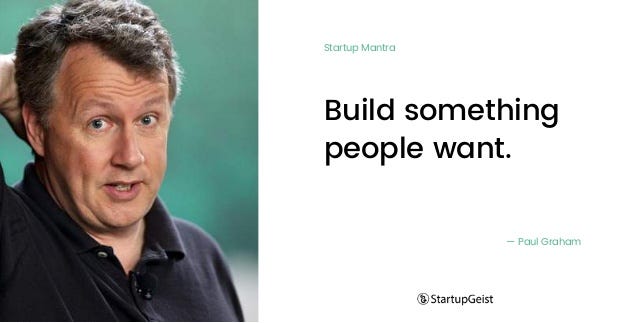The Empathy Factor
I've been in the industry for close to 2 decades and have heard many popular words or phrases and one word that truely stands out is 'Empathy'. I can say with utmost confidence that it is the buzzword for most corporate speak in the 21st century. In fact as a kid I had never heard about empathy, though I was schooled in an English medium Catholic school. What I repeatedly heard from my parents is the word sympathy and I interpreted it as feeling sorry for somone and trying your level best to make the person happy again. It seemed like a binary action to me and anybody who felt unhappy could be converted to a happy monk just by showering him with sympathy. I never felt the need to question and I remember using the word incessantly in my English language essays, only to score the highest. To top it all my teachers would leave no stone unturned to send me to debates, extempores, quizzes and elocution competitions, since my English was flawless. That gave a false sense of entitlement and made me the monster that I am :) Let's try sticking to the story for once. So I grew up on the word 'sympathy' and unabashedly, unapologetically used it perhaps a miilion times every now and then, whenever I felt the need to do so.
As I started my career, I started hearing this new word called empathy. The brown bag sessions in my company would have senior leaders talk about it. The engineering managers would utter it every now and then. Product managers would address every thing and ensure each sentence they utter had the word empathy. I was a little confused and did a little search for it to understand what it is. This is what Google said even back then

No biggie-right. I mean looks like sympathy. I mean trying to be the crying shoulder to someone in distress. Maybe doing something to bring that smile back to her face. Not at all different. As programmers we would be asked to build features keeping customer empathy in mind. Let me tell you , I had no clue what that meant. I mean how would I know sitting in Bangalore, India , how an engineer in Iron Mountain would feel when he'd use the new release that had a feature that I built. I assumed it was binary. If the guy didn't like anything, he'd perhaps pull a bug request on bugzilla. Most of these usability issues were tagged as 'by design' errors by developers and given a priority 4. That translates to doing nothing. Our only objective was to make a release based on a philosophy of ZBB or Zero Bug Bounce propounded by Microsoft, back in those days. The bug query should return zero bugs before the code was finally sent to testers. Our entire effort chain revolved around getting the release to work without any bugs. But although I was least concerend about understanding empathy to say the least, I do wanted to say it every now and then in dev meetings, because last I heard it could send you offshore to a client location and who wouldn't want to go to a foreign country. Anyway as I kept on growing inside the technology utopia, it never occured even once to me what customer empathy was all about.
Post my corporate career, I launched a few startups and failed a million times while running them. In the process I'd talk to a lot of customers who had paid for our software and most of them would say a lot of untoward things about out software. It was disheartening to hear that and we had our classic set of responses where we'd tell them, how much we empathized with them. They wouldn't buy our bullshit and as it so happens with disgruntled and dissatisfied customers, they wouldn't renew their subscriptions and we'd again bombard them with a set of emails, only to receive zilch back. Anyway this kept on happening and once while talking to a set of fellow entrepreneurs, someone said something on the lines of 'empathy'. A fellow entrepreneur had attended a leadership course by MIT and it said something about empathy. He wanted all of us to understand what empathy is albeit at a much more deeper level. It appeared BS to me since I had spent my entire life and did not find anything unsually odd about empathy and sympathy. To me they were synonyms and they could be used interchangeably, so why was this fellow speaking otherwise? I decided to explore and understand bit more about empathy.
In the process I had several life changing events that had a profound impact on me. Some of them taught me about the frailty of human life. There were times of intense grief where I would not want to speak or articulate with anyone. The reason I resorted to this kind of behaviour was primarily because I felt that not many people could understand what I was going through. However there were a few people who could feel exactly what I was going through. It seemed they could feel my heart and experience my emotions. I felt alive. It took time for the wounds to heal but I came out unscathed. I was a different person now. I could feel a lot of emotions gushing through me. I could feel what people were going through at a far more deeper level. This was a very different version of me. It felt awkward but it wasn't that bad. In a span of few months, I had completely tranformed to this far more sentient version of myself. It felt like Mel Gibson in 'What Women Want' , post lightening hits him and he could now hear what women have in their minds.
https://www.youtube.com/watch?v=VFwHs7fEUNs
I felt emancipated. I started digging more and more on empathy. I read every possible book or blog on the planet on empathy and came to a radically different conclusion than what I thought it to be all these years. I can't perhaps cite every reference but I'll cite a few that'll perhaps help you understand more clearly, if you're still with me. No offence being optimistic about your engagement metrics- right :) Anyway to expand on this further I read this brilliant book called 'Team of Rivals' which I have quoted a few times in my previous blogs on leadership

Its an interesting book to read and if one reads this book one would understand that Abraham Lincoln, one of the legendary presidents America has ever had, suffered insurmountable losses throughout his life where he kept losing his loved ones. All these incidents made Lincoln deeply conscious of the pain and suffering anyone faced around him. He understood their magnitude of pain and how they felt because he had experienced the same amount of pain after losing his family members one by one. He developed superlative ability to create an environment of comfort for the person in grief. So when he gradually became the President of United States, he could feel the pain black slaves faced in America and that became an important reason if not the primary reason, why Lincoln started the Civil War,to abolish slavery in entirety from America. Lincoln would perhaps be the most empathetic person, one would ever meet in his or her lifetime.
Now I am sure at this juncture most of you are lost or trying very hard to read through the last few sentences to understand a bit about our magic word for today 'empathy'. Let me talk a bit about a Monday Motivation session organized by Namrata Bagaria, a PhD student, where people from different backgrounds assemble and discuss important topics that they hold in significance. There was a discussion that crystallized in one of these sessions where the topic of dicsussion was the difference between 'empathy' and 'sympathy'. It took me to the time in my childhood when I perhaps had no idea what empathy was. I was sold out on sympathy. Then someone played this wonderful video by Professor Brene Brown, a leading authority on empathy. This animated video clearly shows how empathy and sympathy are different:-
https://www.youtube.com/watch?v=1Evwgu369Jw&t=19s
Empathy is a strong emotion that comes from a devastating experience that tries to bring about existential crisis. It is about being able to feel the pain experienced by someone because you, yourself have gone through something equally tragic and know how shattering the experience is. Only when one is at the same emotional plane that the other person is , one can truely feel the pain and successfully steer the person through it to the other side of the spectrum. It's a celestial experience. We can find some of our religious scriptures talking about the same. When prince Siddhartha was about to ascend the throne, he requested his father for a ride through his kingdom. The sights of suffering that he saw outside his kingdom made him deeply empathetic and made him give up everything in search of the truth.

Empathy is perhaps the core ingredient that makes us human. Unfortunately we haven't thought much about it. Spirituality and philosophy tend to speak about it in detail but in our industrial age we haven't really stressed on the importance of empathy at all. It is never taught in B-Schools. In fact this brilliant HBR article that talks about the difference between managers and leaders, puts empathy at the core of leadership.
So after this grand discourse on what empathy is , it would not be wrong to say that not many people who use empathy as a word don't really understand it. I hear it a lot in the technology industry where people want to build a product keeping customer empathy at the core. Product managers are busy crafting emapthy maps and customer journey maps to understand more and more about the customer. But do you really think such frameworks can enable us to be really empathetic to our customers. Do you think brainstorming within the confines of an airconditioned office on the intricacies of a customer's happiness will result in anything other than assumptions. Its common knowledge that a majority of products cannot achieve market-product fitment because there is apparently no market for the product or in other words the company failed to understand the exact need of the customer and crated a solution that doesn't fulfill the actual need and hence customer rejects the product. Some people are of the opinion that sound marketing can make consumers buy products. If that were the case then almost 98% of the Google producs that failed the test of time would have had an already existing market. Now imagine the audacity or the extent of foolhardiness. One where most founders or product managers do not understand the actual existential need of the customer and two they tap vanilla metrics to measure how well they are doing till hell breaks loose. That brings me to another chain of thought that I have been dabbling in for quite some time. I believe that if we are solving an actual customer or consumer need then we need to stop relying on supply side metrics and start tapping demand side metrics to have a better understanding of how the product is catering to the customer's problems. This isn't esoteric science. In fact the late Clayten Christensen talks about it in detail in his book 'Competing against Luck' . He talks about 'Job Theory' where one tries to see how effective a job, a product is doing for a specific customer need. One cannot use supply side metrics like DAU, GMV, CAC, CLTV to tap custoemr happiness or satisfaction. One will have to use either the existing frameworks like NPS, CES or CSS to get a hang of what atually is happening at the customer side. These too aren't that reliable and are subject to a lot of bias unless they are holistically performed by third party experts. But what is noteworthy is that except the companies that ushered in human centred development based on customer empathy, companies like Amazon, Apple, Nike and Zappos, not one company is interested in focusing their synergies on understanding anything about customer needs in real time and empathising with it.
Isn't that the reason why a politician knows more about his constituency than a product manager knows about his customers. It all boils down to one single word 'empathy'. It's our collective inability to be at the same level as our consumers and experience their pain that results in an extremely myopic view of things. Take a look at this scene at 7:56 from one of SRK's earlier movies where he talks about customer empathy. How insanely accurate his observations are wrt what the customer wants is something we have drifted away from, at least in the technology industry. We really don't know anything about our customers, let alone feel their pain and suffering.
https://www.youtube.com/watch?v=0U3XcR390K8
Alan Cooper in his best selling book 'The inmates are running the asylum' , mentions the inadvertent gap that exists between business people and technology people in terms of what the actual customer needs are. Although that book covered enterprise products but the messaging was apparent-build something that the customers need. Isn't that what PG always talks about

So to sum up this entire conversation, I'd say that its pertinent for people to grow empathy. It's an ability and its binary af. It can either be present where it can help you understand in close proximity about your customer's pain or you can fake it as much as you want but you'd probably have no clue what your customers are going through and most of what you'd gather would be far cry from reality. Now you need to choose what you wish to do- empathize or be dead meat in some time amidst this huge uncertainty. Or as Sheldon Cooper says




